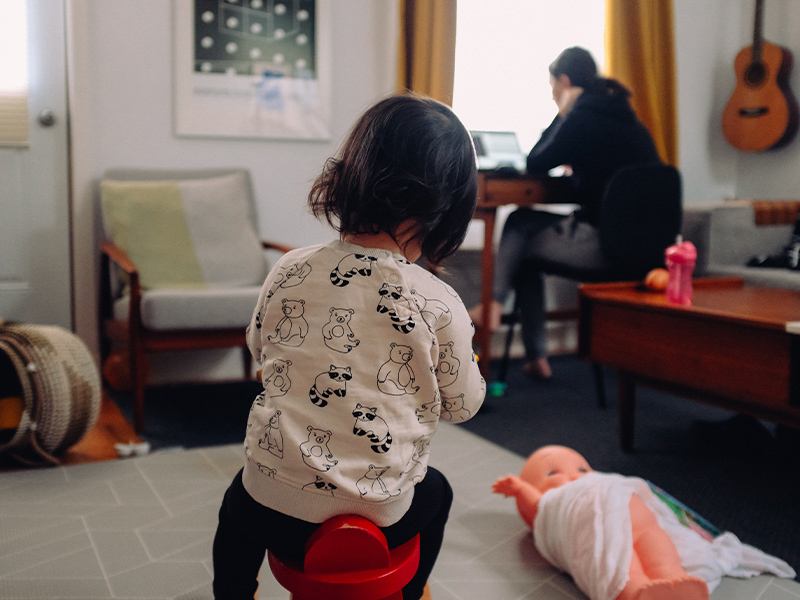Working mothers are losing £1.3 trillion in earnings due to inflexible working and business culture, according to a new survey.
The survey, conducted by Feel, a London-based recruitment consultancy, revealed how British business is allowing trillions of pounds of value in female talent and expertise to go uncaptured.
The survey reports that millions of highly skilled British working mothers are being forced to accept jobs that don’t match their qualifications and training – and therefore are earning far less than men over the course of their working lives.
Data from the Office of National Statistics (ONS) shows that the earning potential of women tracks that of their male counterparts when they enter the workforce, but starts to diverge between the age of 25 and 30.
According to the ONS, the pay gap gets wider from the age of 30 and never recovers as female workers trade away their earning potential for jobs that fit around a family. Between the age of 30 to 65, a woman is £5,000 to £10,000 worse off each year than her similarly qualified male colleagues – in median salary before tax – and this continues until retirement.
According to the report, 75 per cent of mothers surveyed said that they were currently working, but 54 per cent had left or changed jobs because of family commitments. Of those surveyed, 75 per cent had been to university, but almost a third said a degree qualification had played no part in them getting the job they do now.
The report highlights that this loss of earnings is due to the inflexibility of recruiters – 75 per cent of those surveyed said they would like to find a job that utilised their degree qualification if it offered some kind of flexibility.
Those surveyed suggested what their ideal working scenario would be and included: full-time hours which included some days working from home; flexible working-day start or end times to fit around the school day; four days’ working hours spread over five days to provide office cover every day; or nine day fortnights which still ensured business-cover over core hours.
According to Feel’s founder, Jane Johnson, highly qualified mothers in the UK, who are willing and able to work, are increasingly being let down, because of a lack of creativity and understanding about how flexible arrangements could tap into this vast pool of underutilised female talent.
Johnson said, “There are 4.9 million working mothers in the UK and there is an opportunity worth almost £1.3 trillion for the UK economy that is being wasted.”
“But this can only be reversed if businesses explore more flexible ways of working and get these highly qualified, talented women back into the workforce and into jobs at their full potential where they earn salaries to match.”
“There is a huge amount of uncaptured value, but we find many businesses simply aren’t aware of just how flexible parents can be.”
“Flexibility doesn’t just have to mean three days a week, and not being around at critical points for the business.”
“It should not be beyond us in 2018 to think creatively and get these highly-qualified, talented people back into the workforce and capturing their value for the UK economy.”
“I cannot think of any other scenario where a business would accept this degree of wastage.”
” We have to see more businesses in 2018 rising to the challenge.”









